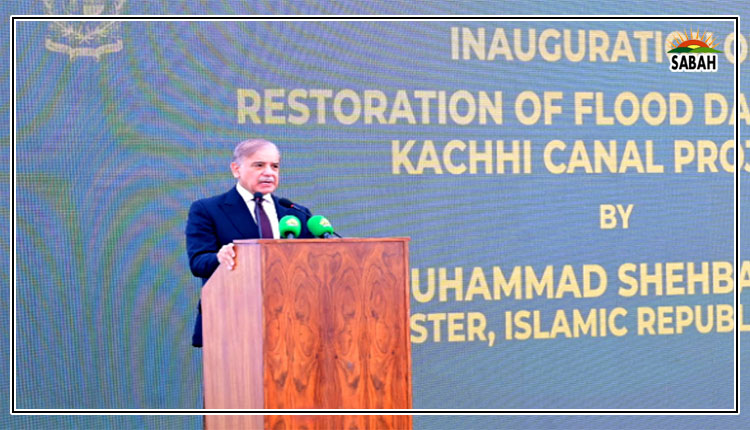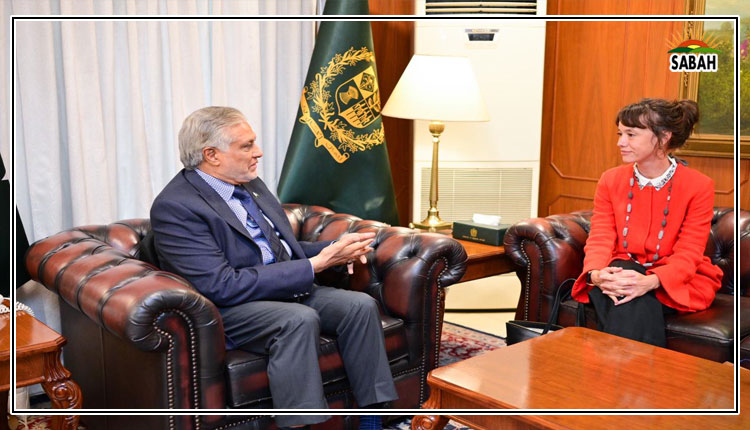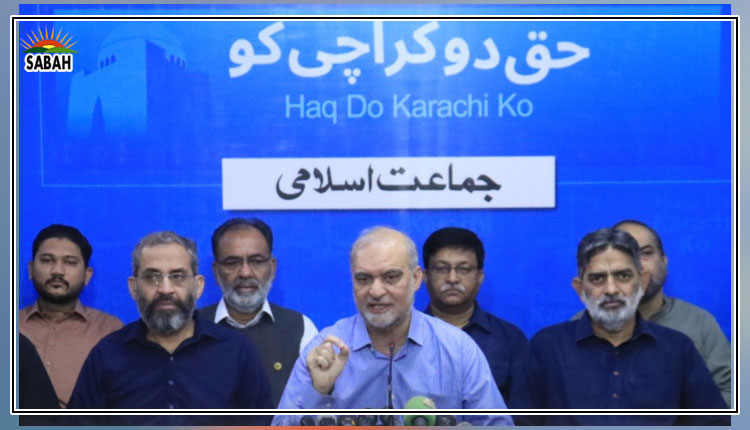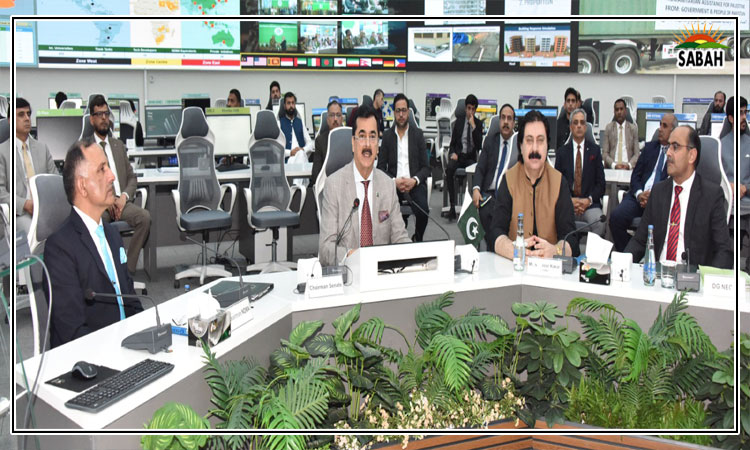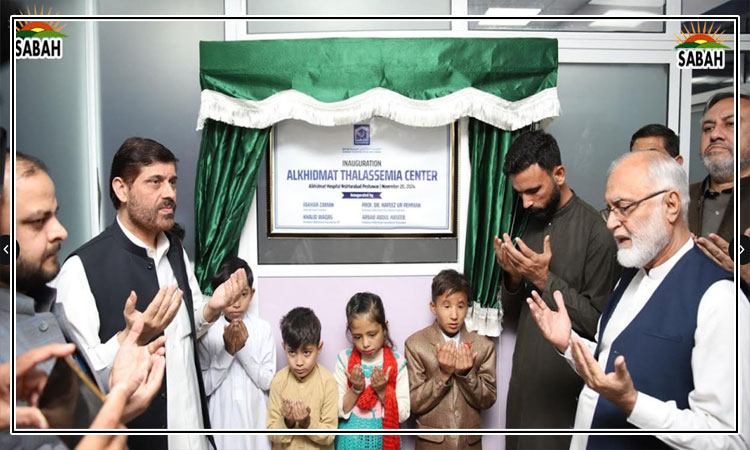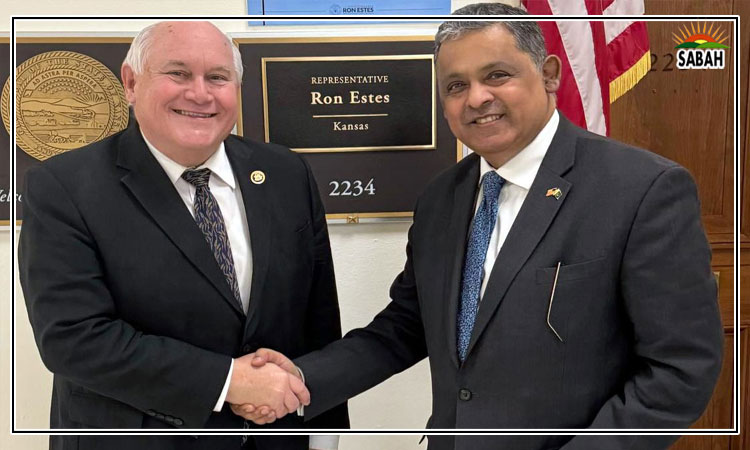Experts warn of early solution of food security issues amid severe climate crisis
ISLAMABAD (March 06, 2024): With contesting priorities amidst worsening climate crisis, it is increasingly challenging to address food security, which has transcended into a human security challenge, said SDPI Executive Director Abid Qaiyum Suleri.
Abid Qaiyum Suleri was speaking at a seminar titled, “Climate Change and Impacts on National Security of Pakistan” organized jointly by Sustainable Development Policy Institute and Ministry of Defense here on Wednesday. He said that climate change is threatening Pakistan’s national, socio-economic and macro-economic stability with the country ranking 14th for economic and 25th for economic losses per unit GDP globally.
Ambassador Shafqat Kakakhel, Chairperson SDPI Board of Governors, said that Indus Water Treaty has delivered well on the agenda of water security and avoided water-driven conflicts between India and Pakistan. While India has constructed several power projects on Indus, Jhelum and Chenab, the permitted water capacity has not been availed yet, he highlighted. He further said that as climate change exacerbates water insecurity and diplomatic efforts stalled, threat of water-driven conflict looms and seek the intervention of Asian Development Bank and International Centre for Integrated Mountain Development for multi-crisis diplomacy and peaceful resolution of crisis.
Ambassador Nadeem Riyaz, President of Institute of Regional Studies, emphasized leveraging dialogues, working groups, water sharing data, regulatory treaties and think-tank collaboration while diplomacy is difficult between India and Pakistan. He said that without political will and diplomacy there is no permanent and effective solution to the crisis.
Ali Tauqeer Shiekh, Climate Change Specialist, said that without multilateral diplomacy, there is no effective solution to the water crisis irrespective of national water management efforts. He added that climate issues must be delinked otherwise they will continue to be held hostage of security and border issues between the two countries.
Aisha Khan, Executive Director, Civil Society Coalition for Climate Change (CSCCC), called for adoption of three focal lens for national security aligning food, water and population considerations, shift to regenerative agriculture and implement research backed agriculture practices. She highlighted that alarming levels of stunting and wasting is an emerging threat for development.
Dr. Iqrar Ahmed Khan, Vice Chancellor, University of Agriculture Faisalabad stressed the need for shifting from flooded irrigation to vertical hydroponic agriculture, farm mechanization. He said genetic modified crops can address water wastage as well as food and climate issues. He added that the government intervention must allow market drivers to reset cropping patterns and increase farmers’ adoption of cropping suggested according to the agroecological zones.
Shakeel Ramay, Chief Executive Officer, Asian Institute of Eco-civilization Research and Development, called for human diplomacy in the light of limited scope and efficiency of military solutions in contemporary times. He remarked that “political will and wisdom are critical for cooperative co-existence in the region”. He added that promotion of genetically modified crops must be coupled with strict compliance mechanisms to address any negative irreversible consequences.
Dr. Shahzad Khan, Vice-Chancellor, Health Services Academy (HSA), stressed on sensitizing policy makers about increased microbiome resistance and zoonotic diseases. He said climate, water and food challenges are inadvertently impacting public health therefore any climate policy must include health considerations. Climate change has increased microbiome resistance and occurrence of zoonotic diseases, which means higher health care burden, he added. He stressed the need for building capacity of health care workers, and community health services to control climate induced health impacts.
Mustafa Haider Sayed, Executive Director, Pak-China Institute, said that unless Pakistan presents a mutually beneficial narrative for climate finance, we will struggle to avail climate finance and stressed on developing climate investment market.
Dr. Imran Khalid, Director Governance, World Wildlife Fund Pakistan, said that climate change is a development and governance failure, thus weak urban planning and governance failures add to suffering of masses. Inadequate water supply infrastructure combined with dismally low wastewater treatment capacity contributes to groundwater and drinking water contamination. Water consumption is doubled than population growth and continuation of water-intensive cropping like rice means virtual water exports, which must be addressed through nature based and indigenous solutions and farmer-academia linkages.
Hamid Afridi, Specialist Green Growth and Climate Change, PPAF, emphasized adopting “human-centric approach to national security” and called for collaboration with local organizations for technology transfer, capacity building of public authorities and local communities. He informed that PPAF is working with local organizations in these areas while focusing on dairy, fisheries, dates, bananas and is promoting best practices in cost-effective natural, liquid agri-inputs to meet food security to address climate challenge.
Dr. Khalid Shafi, Director Internal Security Studies (ISS), Institute for Strategic Studies, Research & Analysis (ISSRA) called for climate statesmanship, generating out of the box ideas, and climate entrepreneurship to take up the issue of climate change. He suggested developing South Asian Climate Charter that incorporates national commitments and constitutional provisions of South Asian countries and adopting “earth race instead of arms race.”
Arif Goheer, Head of Agriculture, Forestry and Land-use section, Global Climate-Change Impact Studies Centre emphasized on policy harmonization for aligning food systems to meet nutritional requirements of the population and address food security challenges.
Fawad Hayat, Head of Climate Change, National Disaster Risk Management Fund (NDRMF) said that recurring climate disasters are exacerbating economic, infrastructure and life losses which calls for climate resilient infrastructure, retrofitting buildings and nature-based solutions and rainwater harvesting. He said cost of adaptation is increasingly while national security reduces. He said that Pakistan will soon be water stressed and some regions will become unlivable and the shift towards climate resilient infrastructure is hampered by financial constraints.
Zafar Iqbal, Superintending Engineer of Federal Floods Commission, said that apart from flood protection beds, water storage projects, and urban flood preventions are being planned. He stressed on strengthening flood prevention infrastructure as first line of defense and scaling up investment in flood prevention and resilience, which at present remains at PKR 26 billion.
Dr. Khalid Waleed, SDPI Research Fellow, highlighting the natural and anthropogenic climate vulnerabilities said that climate impacts can undermine that the 20-30% energy demand met through hydel powerplants and can block transportation arteries. He emphasized the adoption of holistic climate smart and resilient public infrastructure that integrates natural and anthropogenic vulnerabilities.
Dr. Kashif Salik, SDPI Research Fellow, highlighted that the landless rural households are least resilient and ignored in social protection policies which is concerning amidst exacerbating climate risks and higher cost of housing that leads to higher climate induced migration and establishment of slums.
Dr. Shaheen Akhtar, Head of International Relations Department, National Defense University, said that trans-boundary water management challenges should be resolved through human diplomacy but meanwhile internal water management, intra-provincial coordination and water storage should be focused.


